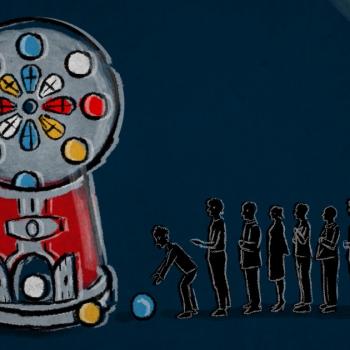Pope Francis has been beating the drum for more affectionate connections in families, again and again urging parents to “Be close to your children.” Two new studies show the practical import of Pope Francis’ words.
First, new research from the University of Adelaide shows that disturbances in the development of the child’s oxytocin system (aka “the love or bonding hormone”) predicts later drug use. Newborns do produce some oxytocin, which facilitates the biological foundations of bonding, especially when being held or nursed, but the child’s oxytocin system isn’t fully developed until about age 3. According to the report,
“…studies show that some risk factors for drug addiction already exist at four years of age. And because the hardware of the oxytocin system finishes developing in our bodies at around age three, this could be a critical window to study. Oxytocin can reduce the pleasure of drugs and feeling of stress, but only if the system develops well.”
Development of the oxytocin system is facilitated by prompt, consistent responses to children’s needs/cries, and high levels of affection and skin-to-skin contact between baby and parents. Once again, this study highlights the importance of approaches to parenting that encourage extravagant affection and intimate connection between parents and children, especially in the first years and months after birth.
If this wasn’t enough, a second study drives the point home. Research published in the journal, Psychoneuroendocrinology, points to oxytocin therapy as a promising new treatment for eating disorders.
“Our research shows that oxytocin reduces patients’ unconscious tendencies to focus on food, body shape, and negative emotions such as disgust,” said lead author Dr. Youl-Ri Kim. “There is currently a lack of effective pharmacological treatments for anorexia,” she said. “Our research adds important evidence to the increasing literature on oxytocin treatments for mental illnesses, and hints at the advent of a novel, groundbreaking treatment option for patients with anorexia.”
As parents, we often worry about giving our children everything they need to be mentally and emotionally healthy. The good news is that it may be easier than we think. In fact, Pope Francis may very well be pointing parents in exactly the right direction. “Be close to your children.” To learn more ways to help your child develop his or her full capacity for resilience, check out Parenting with Grace: The Catholic Parents’ Guide to Raising (almost) Perfect Kids.















